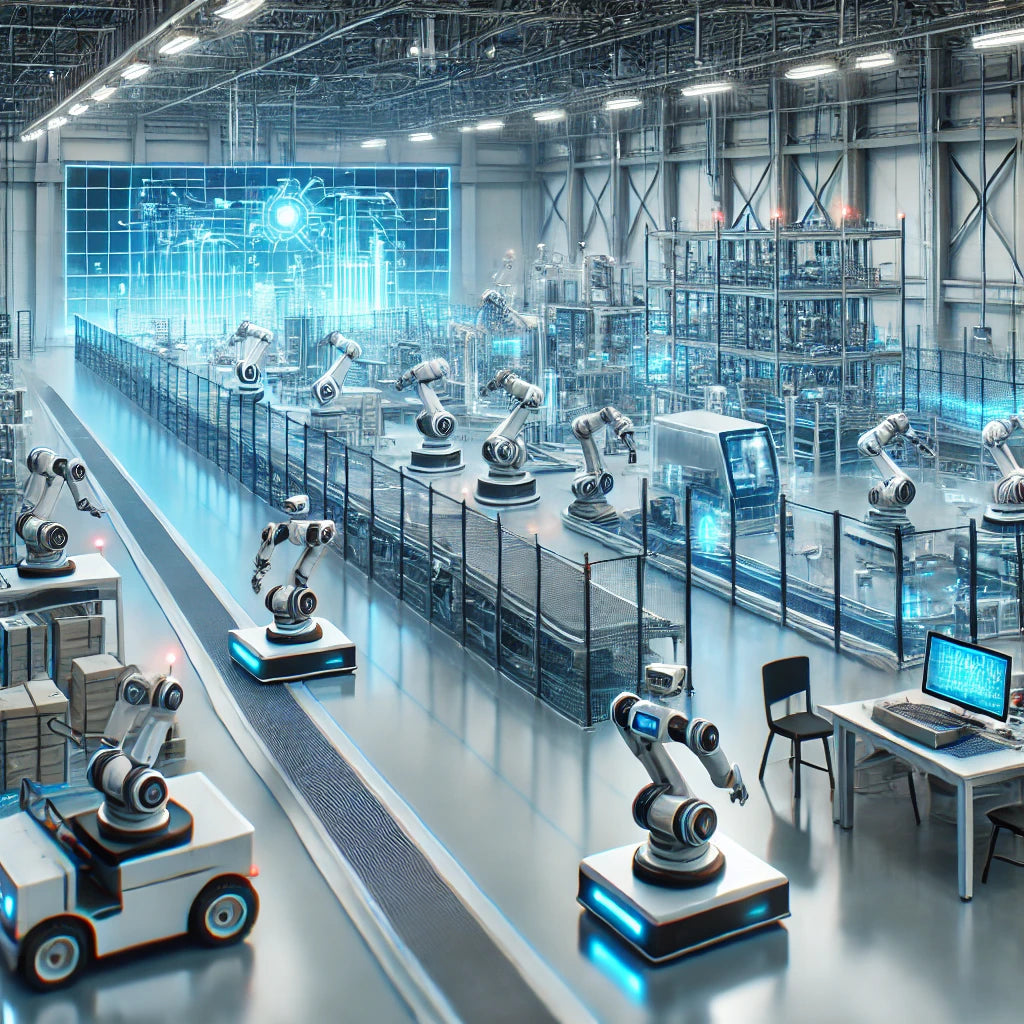Introduction:
Manufacturing automation is no longer just a futuristic idea – it’s a present-day reality that is transforming industries worldwide. From assembly lines to warehouse logistics, automation has become the backbone of efficiency, safety, and innovation. Whether it’s the integration of robots, the use of AI, or the creation of fully automated factories, the advancements in automation are shaping the future of manufacturing.
Key Points:
- Efficiency and Precision: Automated systems like AGVs and AMRs reduce human error and increase production speed, leading to improved throughput and minimized waste.
- Cost Reduction: By reducing manual labor and optimizing production schedules, companies can reduce operational costs while maintaining high output.
- Safety: Automation reduces the risk of workplace accidents by taking over hazardous or repetitive tasks that traditionally involve human workers.
- Scalability: Automated systems are flexible and scalable, allowing manufacturers to adapt to market changes faster without the need for significant infrastructure investments.
Conclusion:
The future of manufacturing is undeniably automated. Companies that embrace these technologies now will lead the way in innovation, efficiency, and safety. As automation continues to evolve, manufacturers must stay ahead of the curve by integrating these cutting-edge technologies into their operations.

